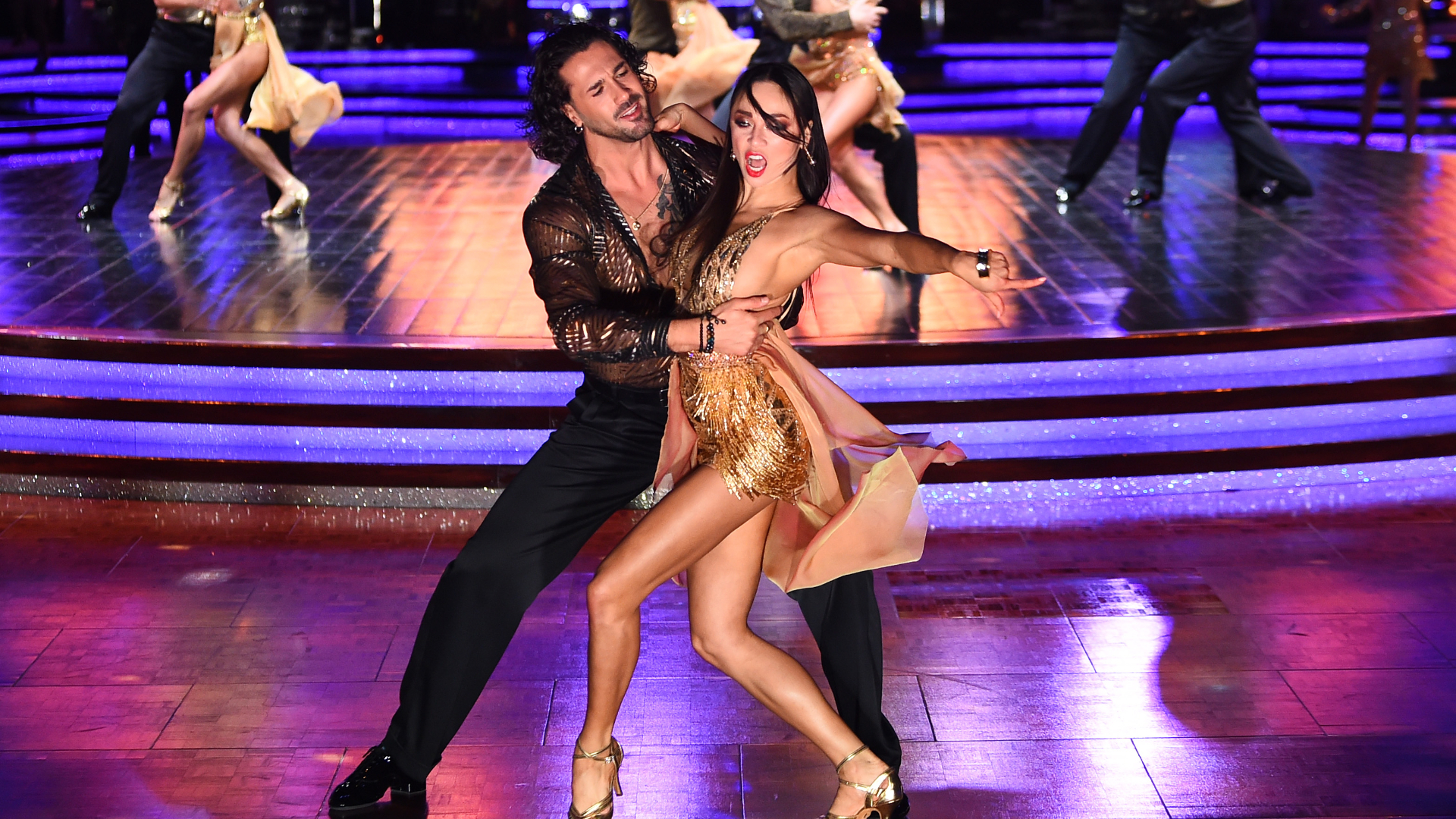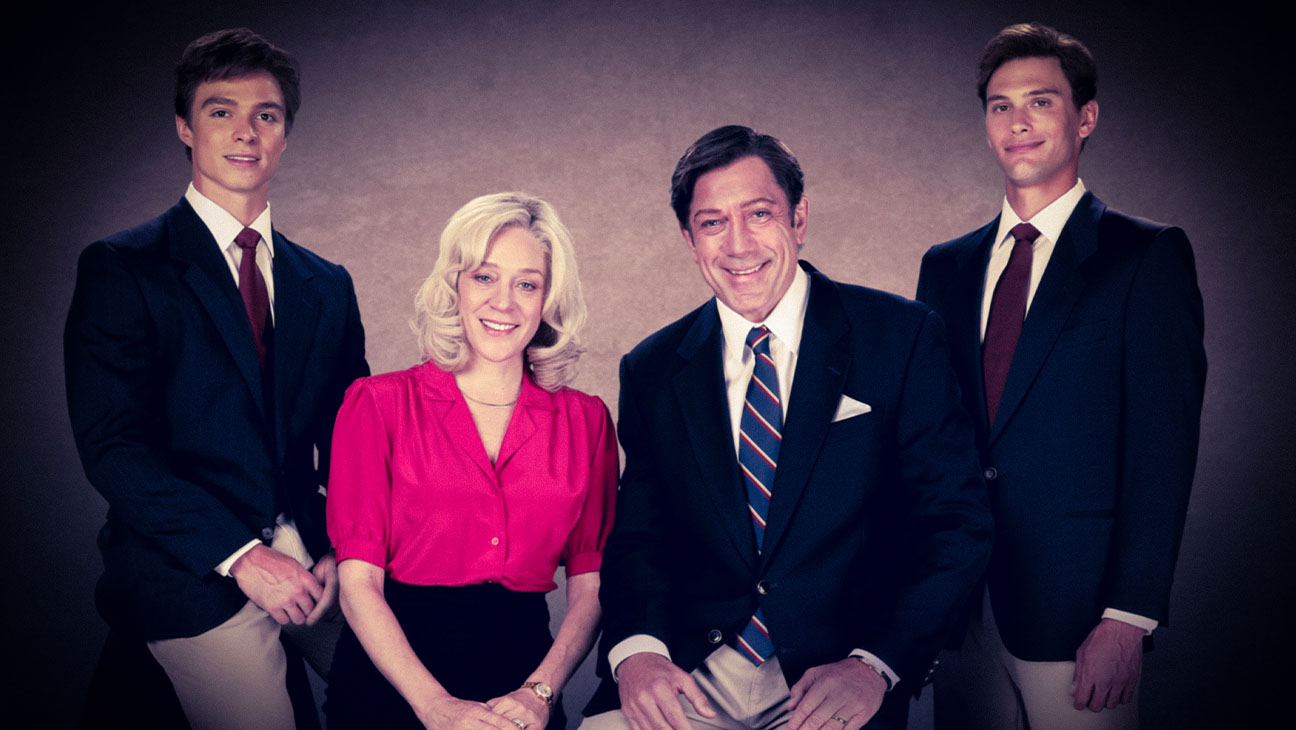Love Island, The Traitors, Love is Blind: they’re so popular, they’ve gone global. Reality TV is an ever-evolving beast that can guarantee hefty viewership with the promise of drama. But show bosses in the U.K. are facing an influx of concerns surrounding the welfare of their contestants and crew. A two-pronged problem has emerged.
On Tuesday last week, the BBC confirmed a myriad of welfare measures are to be put in place on its beloved dance competition series Strictly Come Dancing — watched by an average of 6.6 million people per episode in 2023 — after two former professionals on the show had exited following allegations of “gross misconduct.”
Tim Davie, the broadcaster’s director-general, issued an apology as the company’s annual report was released. Though he did not refer to any specific competitors or employees, he spoke about “a degree of competitiveness, hard work and will to do well” that runs alongside the entertainment element of a show like Strictly (or even its U.S. equivalent, Dancing with the Stars). “That’s part of what makes this show,” Davie said. “But there are limits and the line should never be crossed. We will never tolerate unacceptable behavior of any kind.”
Giovanni Pernice and Graziano Di Prima will not return for this year’s series as the channel pledged two new dedicated welfare producers and a chaperone in rehearsals. This came about after last year’s contestant, Zara McDermott, described watching videos back of her time on the show as “incredibly distressing” and Sherlock‘s Amanda Abbington, who left the show early in October, accused Pernice of “abusive, cruel and mean” behavior during her time on Strictly.

Graziano Di Prima and Katya Jones pictured on the 2024 ‘Strictly Come Dancing’ live tour.
Courtesy of Getty Images
Di Prima apologized and said he “deeply regrets” his actions. “My intense passion and determination to win might have affected my training regime,” the 30-year-old Italian added. Pernice, meanwhile, has refuted the claims against him, telling fans: “I will be back.”
Strictly producers aren’t the only ones making changes. Following the suicides of three people connected to the show, ITV’s Love Island has increasingly fortified its welfare approach in recent years. Sophie Gradon, Mike Thalassitis and host Caroline Flack serve as a reminder of the importance of safeguarding participants before, during, and after a program is filmed. Producers implemented exactly that: thorough pre-filming psychological and medical assessments, a mental health professional engaged with the islanders throughout the entire series, bespoke training on dealing with social media and advice on finance after leaving the villa, for example. Big Brother, too, headed into its rebooted series in 2023 with a new welfare package. All housemates were supported with an individual plan including therapy prior, throughout, and beyond their time in the house.
The first issue for TV bosses is impacting the culture of big-budget reality shows off-screen, and its handling of talent. When a major report from the U.K.’s The Times, The Sunday Times and Channel 4’s Dispatches was released last year, it included the testimonies of multiple women who accused Russell Brand of sexual assault and rape while he worked on Big Brother’s Big Mouth and Kings of Comedy between 2004 and 2007, as well as Russell Brand’s Got Issues (which aired on Channel 4’s youth-skewed channel E4) and The Russell Brand Show. The actor and former presenter has denied the allegations.
But it also revealed an industry-wide normalization of harassment and ill-treatment; a Banijay U.K.-commissioned investigation, taking a look at Brand’s involvement with legacy production company Endemol between 2004 and 2008, revealed informal complaints were made about the star on the set of his projects 20 years ago, including that runners were asked to fetch phone numbers of audience members and an allegation that crew members were made to wait outside his dressing room while he masturbated.
A subsequent report from Britain’s Broadcasting, Entertainment, Communications and Theatre Union (Bectu) concluded that high-profile harassment claims, such as the ones against Brand, have “done little to shift the dial” on the “endemic” across creative industries in Britain. Six in 10 respondents to their survey had experienced unwanted and/or inappropriate touching, hugging or kissing from colleagues. “There is a system problem with microaggressions,” a live events and TV freelancer anonymously told Bectu. “At my original place of work, I couldn’t stretch, lean across the sound desk or pick something up from the floor without being ogled at by my supervisor.”
The report also shined a light on reporting systems and how they are “broken” in creative industries. Many confessed to being driven to leave their job, while others were too scared to report in case it negatively impacted their careers. More than 60 percent did not report because they feared that nothing would happen as a result.
British stars Keira Knightley, Cara Delevingne, Carey Mulligan, Rebecca Ferguson, Naomie Harris and Emerald Fennell are among the names that penned an open letter demanding a crackdown on bullying and sexual harassment in the U.K.’s entertainment industry, urging creative organizations to help fund a new watchdog — the Creative Industry Independent Standards Authority (CIISA) — to investigate complaints in industries spanning music, film, TV and theater. Baroness Helena Kennedy, a Scottish barrister and member of the House of Lords, was appointed CIISA chair on Thursday.
Bectu chief Philippa Childs tells The Hollywood Reporter she’s optimistic about these new efforts to combat harassment: “I think that things are slowly but surely improving. People are putting in place different building blocks to make sure that if people experience that sort of behavior in the industry, there is somewhere to go. We very much support the Creative Industry Independent Standards Authority.”
So why the influx of complaints in recent years? Childs believes this culture is shifting, and others coming forward allows for a wider conversation on bullying and harassment, prompting cast and crew members to speak up. And that temperature, per the Bectu survey, is being taken a lot more regularly. “It’s a positive thing that on-screen talent feel able to speak out and that they will be listened to, and hopefully action will be taken, if the behavior is unacceptable,” she says. “I hope that that would also extend to somebody in the crew who is being abused or not treated well.”
The second problem for reality TV bosses in the U.K. is almost paradoxical. As recently as 2022, U.K. domestic abuse charity Women’s Aid were forced to speak up and talk to ITV execs about “misogynistic and controlling behavior” between contestants on Love Island. The charity said it was forced to act after being tagged in so many social posts about the show by viewers.
There’s little doubt that tears and drama are what makes these shows a spectacle — audiences want betrayal, they want screaming matches across The Traitors breakfast table. So how can real-life people be protected when a show is, fundamentally, about raising those emotional stakes? Where do producers step in, and what’s fair game? And can reality TV be entertaining while remaining ethical?
“Yes, I believe it can,” Childs says. “But as in all workplaces, there has to be very careful consideration… If you set out very clear expectations about behavior from the outset, that always helps matters. And if you have very clear processes of what people need to do if they’re concerned about any behaviors, or if they’ve got concerns about how they’re being presented or how they’re appearing on screen, I think it is possible to make entertaining shows that are still ethically acceptable and not exploitative.”
But the union boss acknowledges it gets “slightly more sensitive” when discussing shows about interpersonal relationships or dating shows like Big Brother and Love Island. “Personally, I’m not a particular fan,” she says of these kinds of shows. “It’s difficult. If everyone just gets on and is pleasant to each other and behaves well, then it’s not so much entertainment. It’s more difficult when a show is purely about relationships as opposed to people developing a skill or showing a skill.”
Childs describes these participants as “really exposed” in terms of “who they are, how they see themselves in the world. I think that can be difficult for the contestants, but also for the crew. And we’ve certainly had feedback that people feel uncomfortable if individuals are being potentially provoked or are in a distressed situation and no one is intervening. Those types of shows are more intrusive and more difficult to manage, but the same applies.”
Much of the problem with these shows is its huge viewership — overnight, regular hospitality workers, nurses, personal trainers, barbers, or make-up artists, for example, become known to millions across the country. This abrupt change is something that showrunners are responsible for, Childs adds. “[Welfare support] should be a continuous thing people should have access to. Counseling, advice afterwards, because sadly, we saw a couple of tragic incidents involving people on reality shows,” she says, referring to the suicides of Gradon, Thalassitis, and Flack, “and I think handling the instant fame that comes from that is also part of the responsibility of the show.”
“Doctors, counsellors and welfare support around the production — they are doing the best that they can,” she adds. “As long as people are warned, because do people really go in knowing exactly what to expect or do they just think it’s going to be all great, this is their five minutes of fame and after that, they’re gonna earn lots of money?”
The U.K. series of Love Island, at its peak in 2019, launched with 3.3 million viewers. Fast forward to 2023, the ITV show had just 1.3 million tune in for the first episode of its 10th season. Whether audiences have become jaded by its format or are simply craving the television that more reckless duty of care standards allowed (in its earlier seasons, the program aired sex, security was called in to stop fights, and generally there was a lot more shouting) remains hard to tell.
This isn’t a problem exclusive to Love Island or Strictly Come Dancing. Married at First Sight U.K., where a group of singles are wedded to partners chosen for them by a team of relationship experts, only last year was forced to remove contestant Brad Skelly after his marriage to Shona Manderson was “deemed to be potentially unhealthy” by show-sought psychological advice. “The welfare of all contributors on Married at First Sight U.K. is our top priority,” a Channel 4 spokesperson said. “And we ensure that appropriate support is available to contributors at all times during filming, including 24/7 access to a member of the welfare team or psych support.”
While awareness has certainly been raised, and progress is being made, is it happening fast enough? “In an industry like ours, progress is slow, frustratingly so at some points,” Childs adds. “But I definitely think things have improved. Change will happen.”



